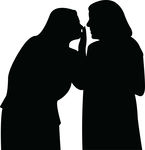Generally speaking, hearsay evidence is not permitted to be considered by the jury in a New York criminal trial. However, there are certain exceptions where a hearsay statement may be properly admitted.
What Is Hearsay?
The concept of hearsay can be complex to grasp, but essentially a hearsay statement is one that was made by a party who is not present to testify in court. A statement is only hearsay if it is testimonial, meaning it is being used for “proof of the matter asserted.” Thus, if the statement is not being used to prove that which was said, it will not be considered hearsay.
Why Is Hearsay Prohibited?
The rationale for the hearsay exclusion is based on the fact that the party who made the statement is not in court to explain what was meant and is not subject to cross-examination. For example, sarcasm may not come across when a statement is relayed at a later date through a third party. In criminal trials, there is also the concern that the person making the statement cannot be cross-examined, depriving the defendant of their confrontation rights under the Confrontation Clause of the Constitution.
Court Concludes Non-Present Witness’ Statement Is Not Hearsay
As noted above, there are numerous exceptions to the hearsay exclusion. Recently, a state appellate court issued an opinion discussing whether a witness’ statement was properly admitted against the defendant, who was charged with a New York assault crime.
According to the court’s opinion, police arrived on the scene of a knife assault and were met by a witness who told them that the defendant was the perpetrator and pointed out the direction in which he fled. Police explained the witness was “frantic,” and the statement was made shortly after they arrived on the scene. The witness was not called to testify against the defendant, but the witness’ statement came into evidence through the testimony of the police officer.
The defendant argued that the witness’ statement was inadmissible as hearsay evidence. The trial court overruled the defendant’s objection, and the defendant was ultimately found guilty. The defendant appealed; however, the court concluded that the statement was non-testimonial because it was given to a law enforcement officer whose “primary purpose was to determine what had happened and to ensure the safety of other persons,” rather than to arrest and prosecute the person who committed the alleged stabbing. Interestingly, the appellate court did not base its decision on the same grounds as the lower court, which had held that the statement was an “excited utterance.”
There are numerous exceptions to the general rule that hearsay is not admissible. The exceptions each are complex in the application of the exceptions but are generally statements which have some inherent reliability. For example, an “excited utterance” may be admissible at a trial because it is generally believed that a person who is affected by a traumatic event that occurred immediately before the event probably would not have the where-with-all to make up an false statements. Other exceptions like dying declarations, statements against penal interest, present sense perception are all believed to have some inherent reliability.
Hearsay, and the rules of evidence generally are complex and require an experienced trial attorney to help navigate.
Have You Been Arrested for a New York Crime?
If you have recently been arrested and charged with any serious felony or misdemeanor offense, contact the dedicated New York criminal defense attorneys at Tilem & Associates. At Tilem & Associates, we represent clients who are charged with all New York crimes, including drug and gun crimes. To learn more about how we can help you defend against the charges you are facing, call 877-377-8666 to schedule a free consultation today.
Related Posts:
New York Court Affirms Defendant’s Conviction for Forgery Based on Possession of Counterfeit Tickets
New York Court Affirms Assault Conviction, Rejecting Defendant’s Weight-of-the-Evidence Claim
Court Discusses What Discovery Is Mandatory in New York DWI/DUI Cases
 New York Criminal Attorney Blog
New York Criminal Attorney Blog

